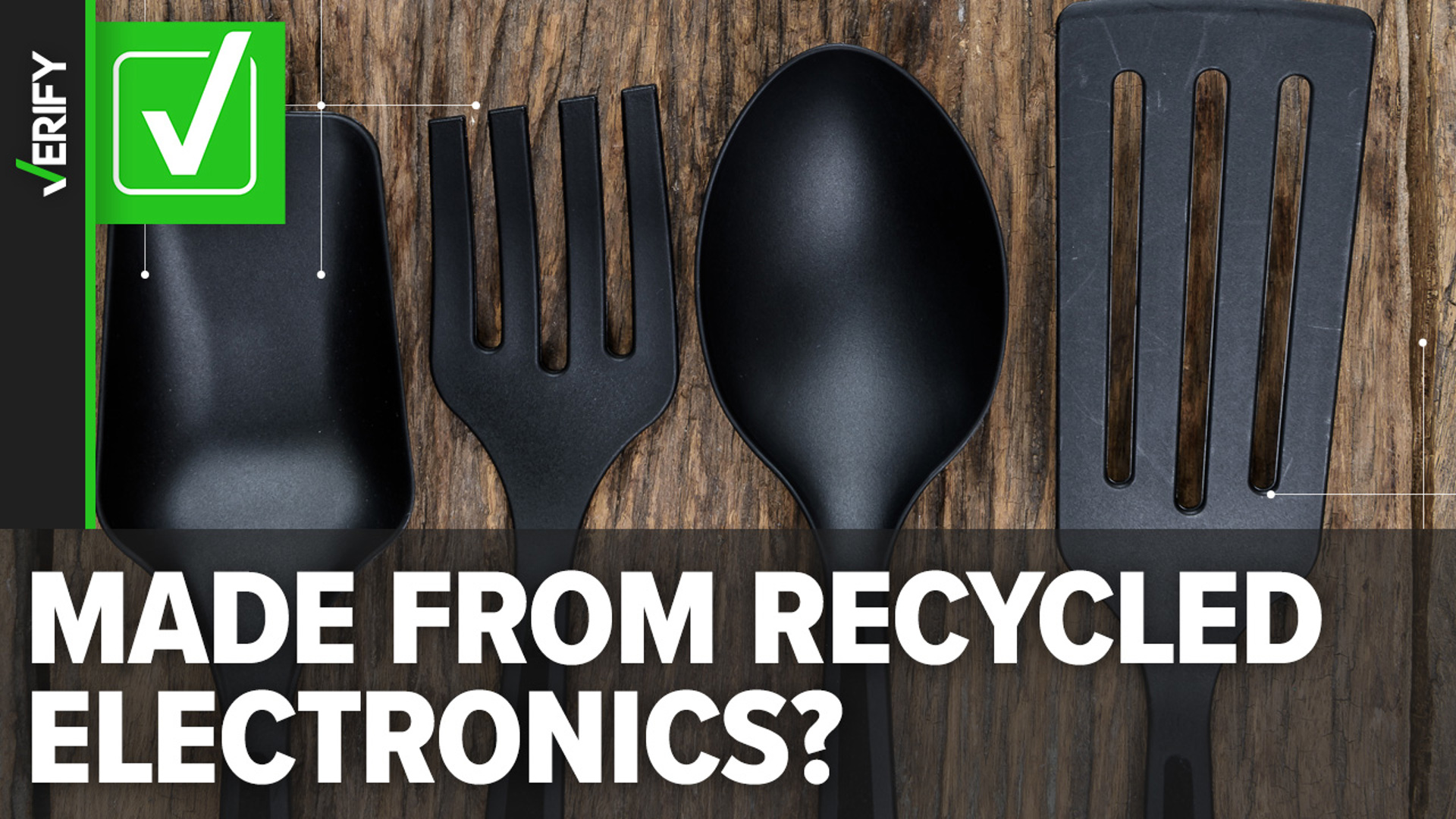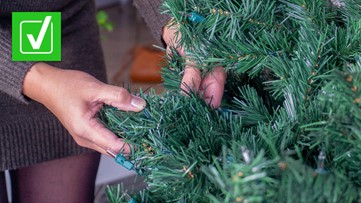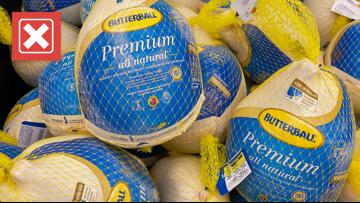Many people don’t just worry about what food they put into their body, they also worry about what chemicals might enter their body from everyday items, especially as evolving research reveals some of them could potentially be harmful. Recent headlines have suggested people should throw out certain kitchen utensils because they contain harmful chemicals.
Several VERIFY readers reached out to us to ask if black plastics, such as those used in cooking utensils, toys and food containers, are made from recycled electronics, and whether they contain harmful chemicals that could enter their bodies.
THE QUESTION
Are some black plastics made from recycled electronics?
THE SOURCES
- Literature review of studies about flame retardant chemicals in black plastics
- October 2024 study about flame retardant chemicals in black plastics by researchers with the Amsterdam Institute for Life and Environment and Toxic-Free Future, an environmental health research and advocacy group
- Studies about flame retardant chemicals in black plastics from 2010, 2017 and 2022
- Maryann Amirshahi, Ph.D., a medical toxicologist at the National Capital Poison Center
- Government of Falmouth, Massachusetts
- Government of Hennepin County, Minnesota
- Beyond Plastics, an organization that seeks to end plastic pollution
THE ANSWER
Yes, some black plastics are made from recycled electronics.
WHAT WE FOUND
Some black plastics, such as those often used in kitchen utensils, takeout containers and toys, are made from the plastics in recycled electronics such as televisions and computers.
These recycled plastics may contain chemicals that can be dangerous to humans in high enough quantities, especially when exposed over a long period of time, and are capable of migrating from the plastic to food. There is not enough data at this time to say for sure that black plastics contain enough of these chemicals to cause health problems with routine use, according to Maryann Amirshahi, Ph.D., a medical toxicologist at the National Capital Poison Center.
Multiple studies conducted in the last 15 years have found flame-retardant chemicals, which are chemicals designed to make a product more fireproof, in household black plastic products around the globe. That suggests, according to a 2018 review of studies on the subject, that the demand for black plastic is being met through using recycled electronic products.
Black plastic is generally not recyclable at traditional recycling facilities, according to Beyond Plastics, an organization that seeks to end plastic pollution, and local recycling guides in Falmouth, Massachusetts, and Hennepin County, Minnesota.
This is because most traditional recycling facilities sort plastics using infrared light. The material black plastics are usually made from absorb light, which means they go undetected at recycling centers and are thrown out into landfills.
Electronics, which often include flame-retardant chemicals, are recycled through a different process than those used in regular recycling facilities. As part of that process, the plastic is separated from the other components, which allows it to be recycled.
Flame-retardant chemicals are chemicals applied to materials such as furniture and electronics to prevent or slow the spread of fire, according to the National Institutes of Health (NIH). Significant exposure to them can be toxic. Many of these often complex chemicals are made from bromine, which can be toxic in itself, and some have been phased out of new products.
Adverse health effects of flame-retardant chemicals may include cancer, disruptions to hormone production and the body’s hormone system, negative effects on reproductive health and adverse effects to fetal and child development, the NIH says.
The recent attention on black plastics stems from an October 2024 peer-reviewed study by researchers with the Amsterdam Institute for Life and Environment and Toxic-Free Future, which is an environmental health research and advocacy group. The study found detectable levels of flame-retardant chemicals in black plastic kitchen utensils, take-out containers, toys and accessories sold in the United States.
Some of the products the researchers tested contained very high levels of flame-retardant chemicals, although most of the products did not. Of the 203 black plastic products the researchers tested, 10% had notable quantities of bromine, a chemical that indicates flame-retardant chemicals may be present.
This variability is one reason why Amirshahi says it’s hard to know if a person is in any danger by routinely using black plastic products in their house.
“Some utensils may have no or very low levels of worrisome chemicals, and others high amounts,” Amirshahi said. “You also have to consider how often the product is used and how long it is used for. If you use plastic cooking utensils regularly on high heat, the exposure is likely greater.”
This kind of low-level exposure to these kinds of chemicals does not cause any immediate symptoms or issues. Instead, Amirshahi said any problems — cancer, disruptions to hormone systems, effects on the brain and effects on the reproductive system — would likely be a result of cumulative exposure to the chemicals over years.
Whether these products are exposing people to enough of these chemicals to actually cause those problems isn’t known as of yet, Amirshahi said. Even if scientists did have that data already, the risks would depend on the particular product and how it’s used.
Even in the case of a spatula, any potential danger could vary based on the size of the spatula, how hot it gets when cooking, how long it’s heated for, how much contact it has with the food and how much of the chemicals it actually contains.
For those who wish to limit their exposure to black plastics, metal and wooden kitchen utensils are good alternatives, Amirshahi and Beyond Plastics say. Additionally, Beyond Plastics recommends not microwaving food that’s still in a black plastic container and suggests considering moving food into another container even if it’s not going in the microwave.
This story is also available in Spanish / Lee este artículo también en español: Sí, algunos plásticos usados en utensilios de cocina y juguetes, están hechos de electrónicos reciclados












